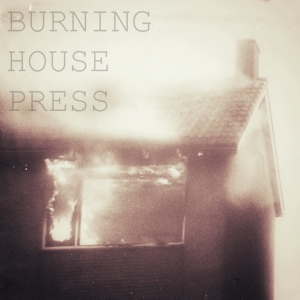5 PM
At the time of the day that people confuse with night, in the buzzing humidity, the child watches through a cracked door as timelessness roams the long corridors of the house. Space is emptied of all superfluous noise; only footsteps, with a soft rhythm entirely their own, measure time. She must be quiet so as not to disturb any fateful thoughts. She is dizzy from holding her breath and there are shadows, more and more, in front of her eyes. The voice that grabs her by the hair and with a firm yank lifts her to the surface is green and smells of the damp forest floor. Instead of lively eyes bright with beckoning, what the child sees is a narrow path through a vineyard, where little footsteps patter out yearning for the unknown. She enters the tiny patter and it is exactly right; now they are walking together, blended to durable bronze in the extinguished fires of initiation. As light as childhood, they come to their trees on the far edges of a vast clearing. We brave the afternoon, two wrestlers of timelessness, the long walk through a trapped world.
*
MIDNIGHT
At the hour of the day that is silent, I hear whispers. The cathedrals of our bodies empty out at the high hour of sleep, our voices are restrained in a throaty catch of breath, and anything we don’t need is cast into the night. Prayer, like a woman who loves, lies down in the aisles of the cool building and waits for what will happen. The pause of the hours will be submerged in hope born a second time—for these vast spaces have no tears left for weeping, these defilements have been redeemed, and innocent footsteps have waded into the shallows of these wounds. There is nowhere to hide except at the beginning of pity, which loves you in the thrill of its own conception, which rocks you like a child just above the ground. Yours is the grace of mindlessness. Warm glows the night of Your mercy. O to fall through the fingers of Your forgiveness. Where this prayer finds a place, my face will rest.
*
1 AM
A tiny note in a forgotten book—barely visible, graying, in italics, set apart, squeezed inside itself, almost illegible—stands out majestically, like words written across the image in a mirror: The heart hangs in a void when you depart. Like a crisp leaf of ivy it turns red in the light. All around, slowly slowly, as self-evident as life when it’s flowing, a new body is put together, without rouge, without curves. The day of separation is returning, like wind that blows through clusters of tomatoes and just a few steps away the sweetness dissolves in the air. There will be days of translucent fragrance, the body will hang in a looser embrace, and slowly slowly a new name will be devised. People will say: Who is this person who, in the undergrowth of lingering old age, seeks a path to the open sea? She takes words with her and carries them like a ball of snow. On her way back, she will search the soggy ground for traces of the gift she lost.
Note:
In the prose-poem cycle Poems of the Day, a little girl visits an old seamstress; she meets the day with her, watches as the woman receives clients, experiences the passing of time, sleeps with her in her bed and perhaps dreams with her. The Slovene poet Miljana Cunta presents this story through twenty-four elusive prose poems, each marking an hour in the day: from hour to hour, youth observes age, yearns for its experience, seeks to enter the mysteries of life, even as the old woman is already preparing to leave “the trapped world.” In the original Slovene publication, the poems are interspersed with Dušan Šarotar’s evocative photographs, which do not so much illustrate the text as provide a visual complement to Miljana Cunta’s lyric prose. One of these photographs accompanies this selection. — Rawley Grau
About the author:
Poems of the Day (Pesmi dneva, 2014) is Miljana Cunta’s second book of poetry. Her first collection, By Half the Sky (Za pol neba, 2010), was shortlisted for two major Slovene poetry awards. Both books have been translated into Italian. Her third book of poetry, Light from Outside (Svetloba od zunaj) appeared in 2018.

About the translator:
Originally from Baltimore, Maryland, Rawley Grau @roligrau has lived in Ljubljana since 2001. He has translated works by a number of significant Slovene writers, including Aleš Debeljak, Vlado Žabot, Dušan Šarotar, and Mojca Kumerdej. In 2017, his translation of Šarotar’s novel Panorama was shortlisted for the Oxford-Weidenfeld Translation Prize. His translation from Russian of the poems and letters of Yevgeny Baratynsky, A Science Not for the Earth, was awarded the 2016 AATSEEL Prize for Best Scholarly Translation.

About the photographer:
Dušan Šarotar @DSarotar is well-known in Slovenia as both a novelist and a photographer. His most recent novel, Panorama (2014, published in English translation in 2016), incorporates photography as an integral part of the work. An earlier novel, Billiards at the Hotel Dobray (2007, Biljard v Dobrayu), will appear in Rawley Grau’s English translation in the fall of 2019.



Leave a comment